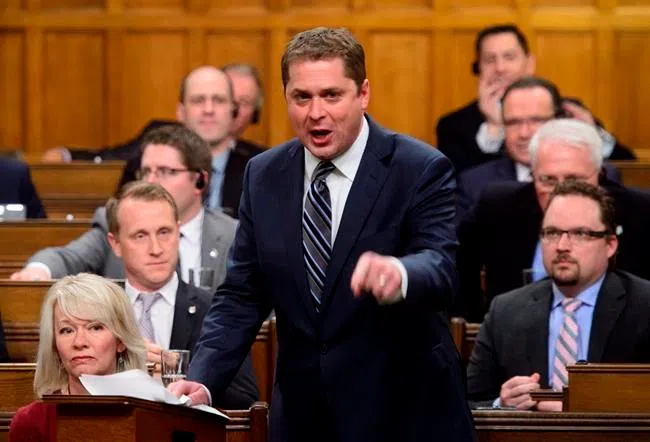
Trans Mountain opponent got federal money through Canada Summer Jobs: Tories
OTTAWA — The federal Liberal government found itself taking fire over the stalled Trans Mountain pipeline expansion from opposite flanks Wednesday: accused of helping to finance pipeline protesters on the one hand, and rigging the review system in favour of the project on the other.
Conservative Leader Andrew Scheer led off question period with the revelation that one of the successful applicants to the government’s Canada Summer Jobs program is a B.C. group looking to hire someone “to help … stop the Kinder Morgan pipeline and tanker project.”
“Does he not realize that he is funding the very groups that are protesting against the project that is in the national interest?” Scheer demanded.
“We are talking about taking tax dollars from people who are out of work in the energy sector and giving it to people who are trying to block a project in the national interest.”
